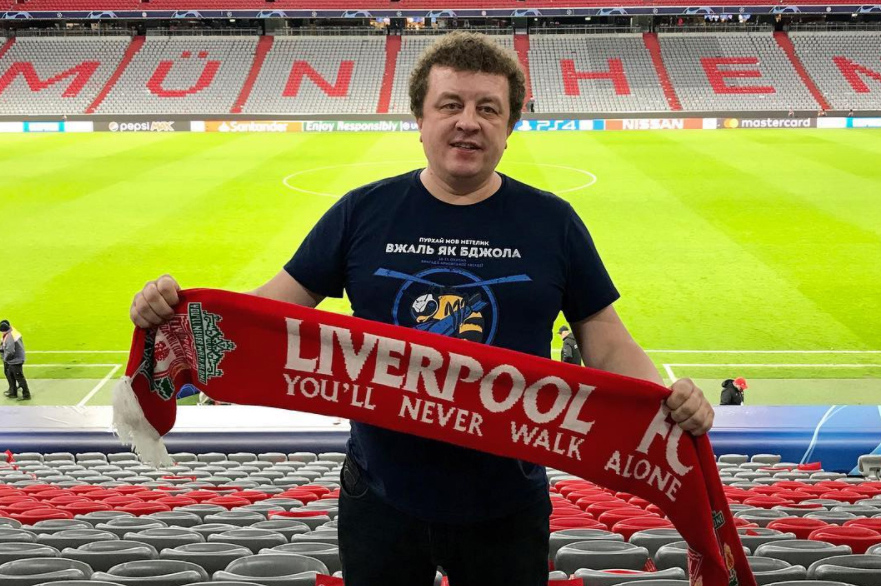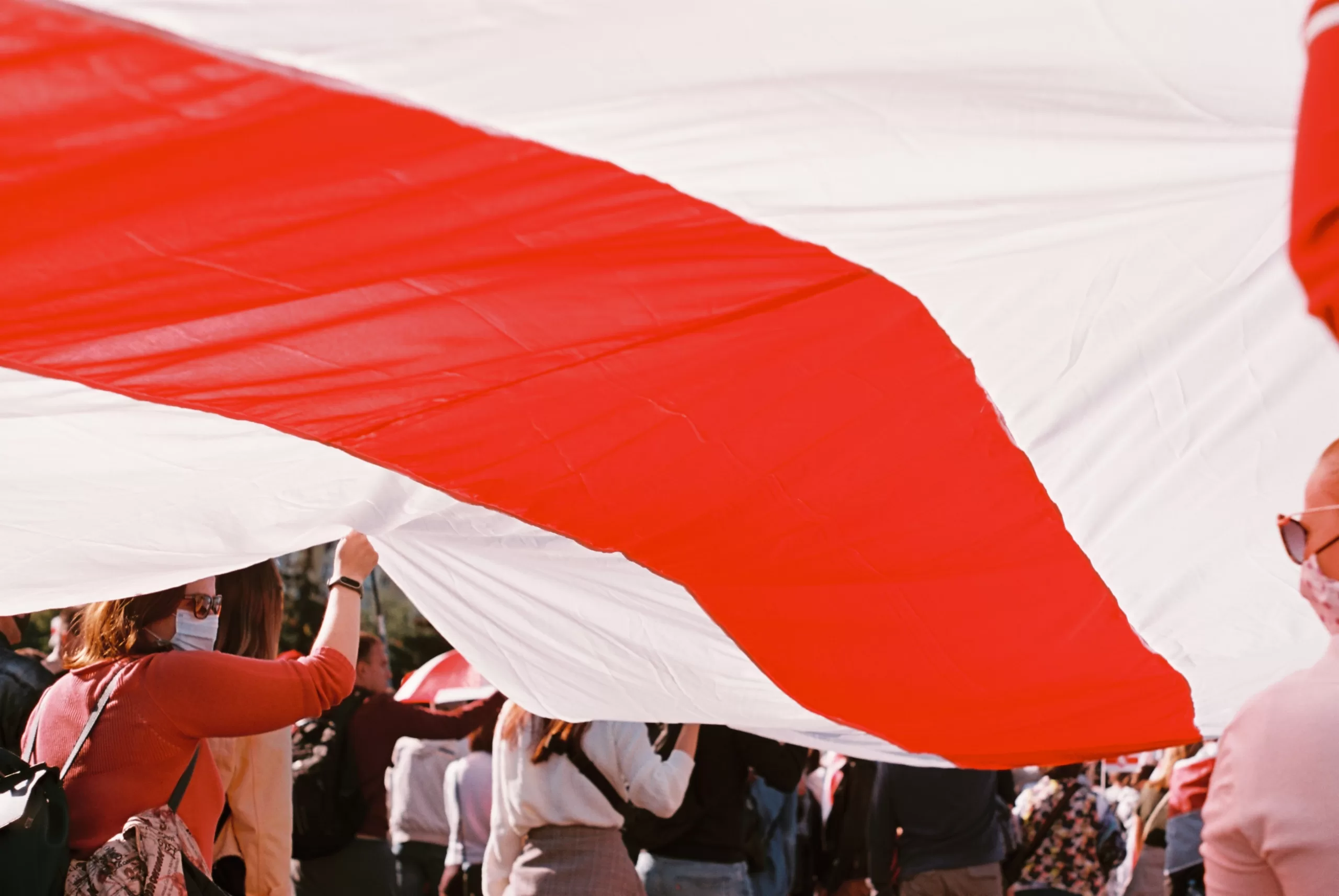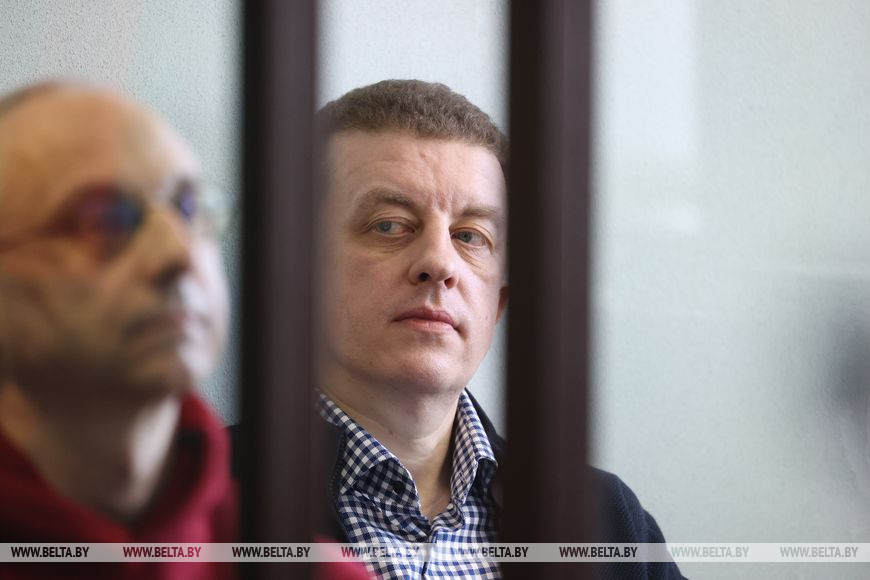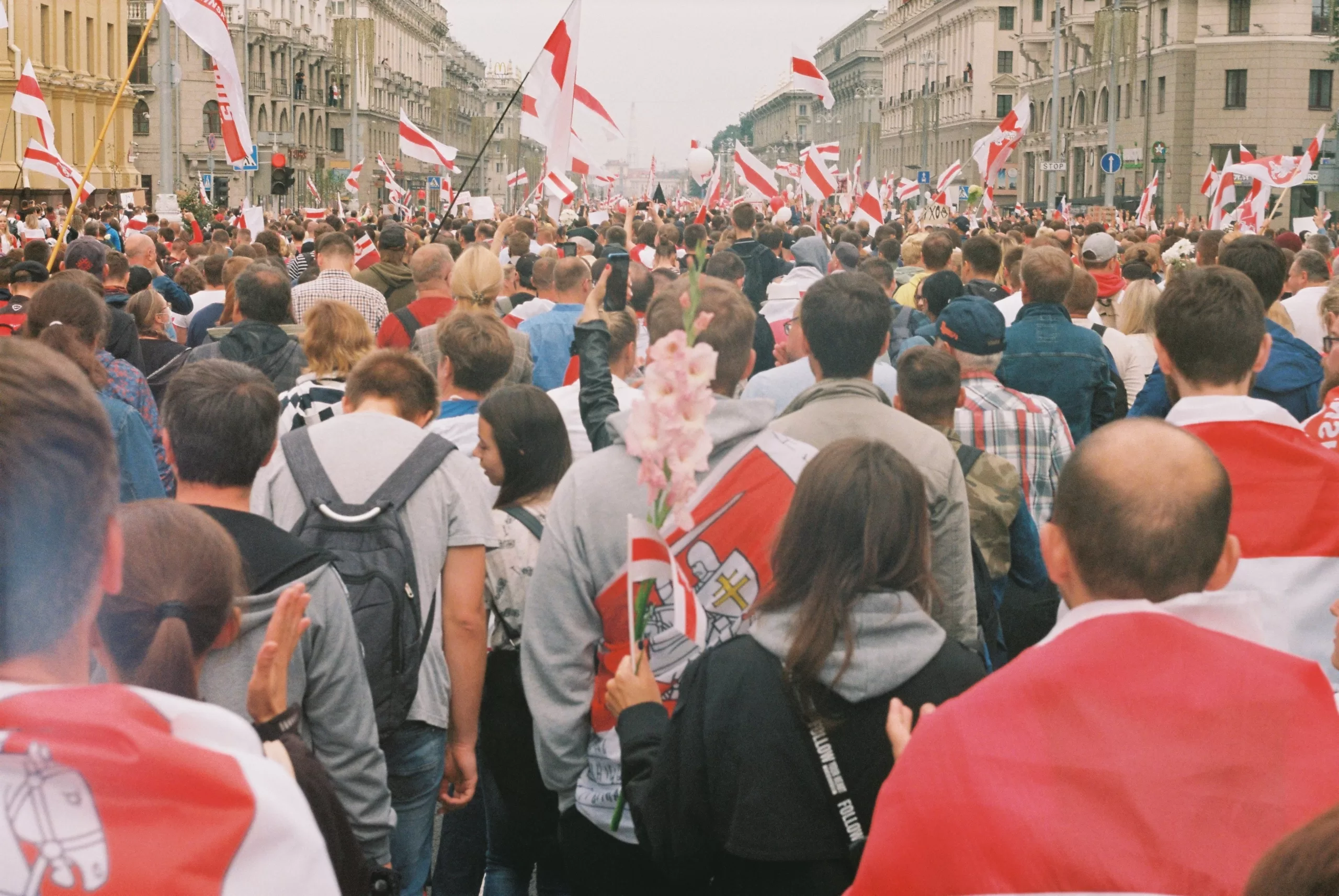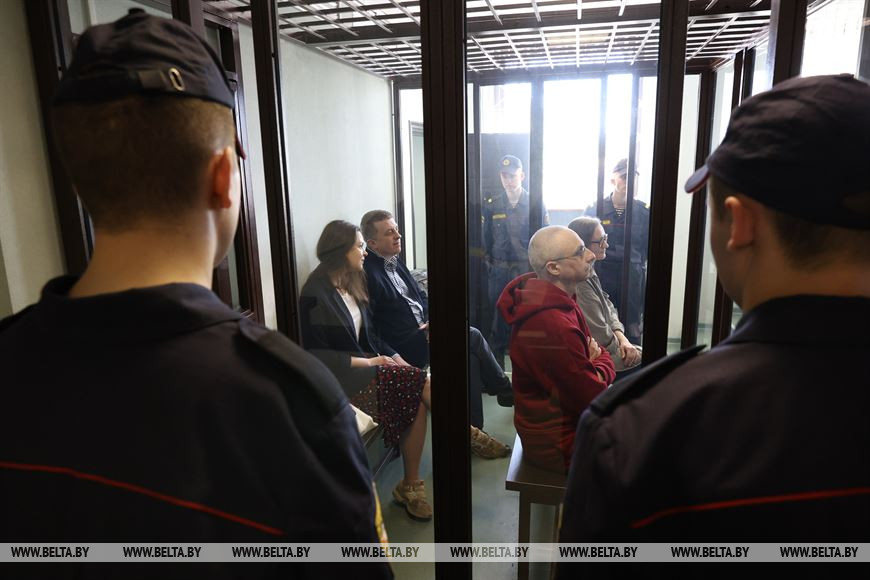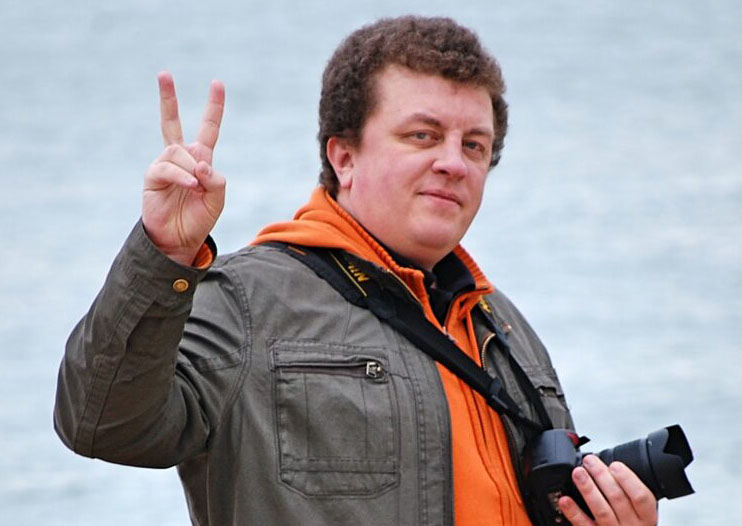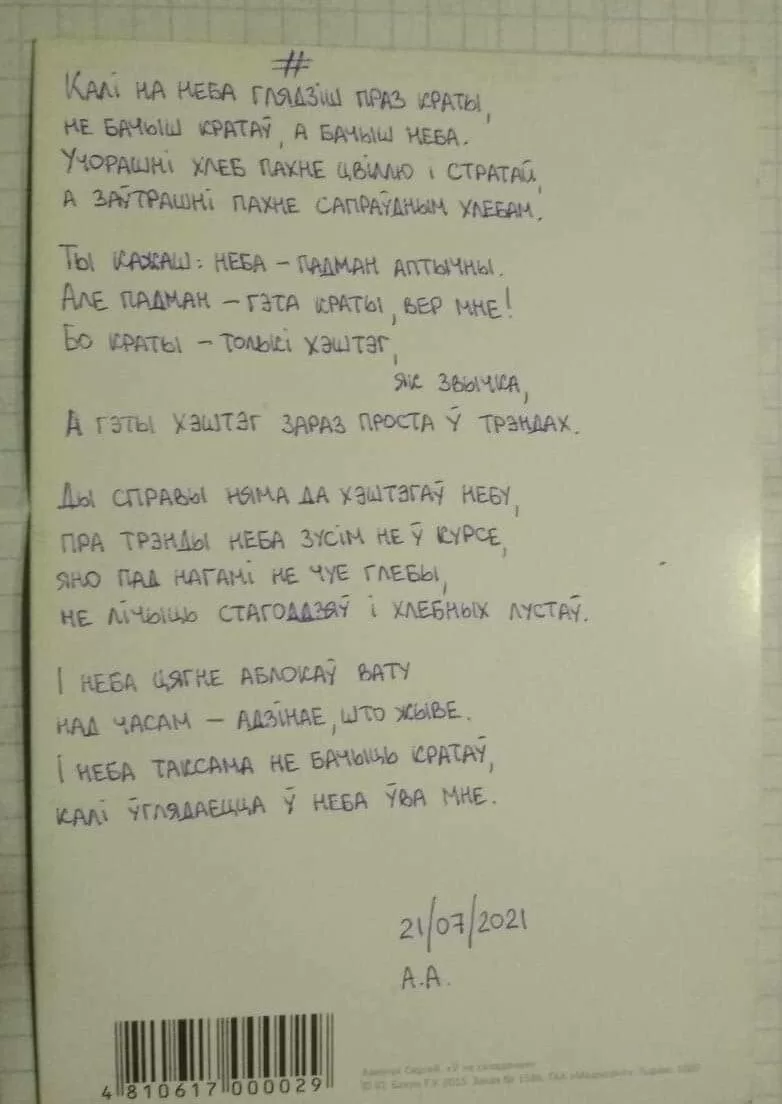7 Jul 2023 | Belarus, News and features
It is hard to imagine something more damning as an indicator of press freedom than a leader banning the country’s journalism union and threatening penalties and jail for anyone who has dealings with it.
Yet this is what has been done by Alyaksandr Lukashenka’s Belarus, fast becoming a model for media repression. In February, the Belarusian Association of Journalists (BAJ) was designated by the authorities in the country as an “extremist formation”.
The authorities also identified eight people, including BAJ chair Andrey Bastunets, who now face up to ten years in prison for "establishing or participating” in the organisation. Others who have financed or “abetted” BAJ could also face jail time, arbitrary detentions, interrogations, and searches.
While another 20 media companies, most of the mainstream, independent Belarusian media, have also been given a similar label, this is the first human rights organisation to be designated thus.
Now the Belarusian authorities have gone a step further and BAJ’s website, social media accounts and logo have now been designated as “extremist materials”. Anyone disseminating the association’s content or merely liking an article on its social feeds could mean a 15 day stay in jail.
The situation is like Britain’s government putting the National Union of Journalists in the same category as Al Qaeda.
Journalists in Belarus, at least those who report critically about Lukashenka’s activities, are now under threat. Some are in jail - 34 media workers at the end of June) – despite Lukashenka this week telling the BBC’s Steve Rosenberg that there are no political prisoners in the country.
Other journalists have left the profession while others have fled abroad.
In spite of these attacks, Bastunets, speaking to Index about the challenges facing journalists, says the independent media of Belarus is far from dead.
“Those journalists who left the country face different challenges than their colleagues in Belarus,” he says, with particular problems in obtaining legal residency in host countries, the high cost of living and renting accommodation even though many of them have their own, now empty, apartments in Belarus.
“There is also the different legal environment, language problems, the sometimes discriminatory attitude to Belarusians as co-aggressors, …and, for some, psychological burn-out.”
Many of those who left Belarus expected to return in a month or two, he says.
“Repression has been going on for almost three years and it is not clear when it might stop. And if media outlets have mostly coped with relocation, survival, and the arrangement of their activities, new challenges await us if current trends persist. One of them is the necessity of accepting the fact that we are in exile for a long time.”
But rumours about the death of the independent media in Belarus are “exaggerated”, he says.
“Several influential media outlets are still working in the country. But, of course, their working conditions are extremely unfavourable. Journalists live under constant threat of raids, detentions, interrogations, and criminal prosecution.”
As a result, media organisations that still operate in Belarus have reinforced safety measures for their journalists as well as using even more secure communications protocols.
They are also self-censoring to some extent.
“Editorial boards have to take extra care when publishing pierces on sensitive issues - on government activities, on opposition, on the war in Ukraine, etc. – in order to minimise the risks,” says Bastunets.
In addition to media outlets with editorial offices in Belarus, there is also a large number of freelance journalists who continue to operate in the country but contribute, usually anonymously, to editors in exile.
This carries grave risks. On 30 June, cameraman Pavel Padabed was sentenced to four years in prison after being accused of cooperation with the Polish TV channel Belsat, which has also been recognised as an extremist formation.
There is plenty to report on.
The news two weekends ago that Alyaksandr Lukashenka, whose legitimacy as the leader of Belarus is contested, had acted as a “peacemaker” between Vladimir Putin and Yevgeny Prigozhin provided an interesting story for Belarusian media, both in and outside the country.
Lukashenka promised Prigozhin that could come to Belarus as part of a deal he claimed to have brokered to reduce the tension. Confusingly, he has since announced that Prigozhin is not in Belarus but in St Petersburg (or Moscow).
Most independent media actively covered the actions of Prigozhin and Wagner against the Russian Defence Ministry, with editors and commentators using a variety of terms - military uprising, putsch, coup attempt, march of justice, conflict – to describe it.
“State-run media outlets focused on ‘praising’ Lukashenka's role in settlement of the conflict, which is questioned by many independent experts,” says Bastunets. “It is unknown whether Prigozhin and Wagner Group mercenaries are now in Belarus and whether they were or will be here at all. But there is a feeling that the Wagner mercenaries will not be welcome guests.”
If Prigozhin does turn out to be in Belarus, the country's independent media are still there to report on it.
30 Jun 2023 | News and features, Newsletters, Russia, Ukraine
Last week’s mutiny by Yevgeny Prigozhin, the leader of the mercenary Wagner Group, provided a challenge to established western media outlets, such was the speed of the advance by the man known as Putin’s chef towards Moscow and the lack of verifiable information coming out of Russia. The subsequent accommodation between Prigozhin and Putin, apparently brokered by the Belarus leader Alyaksandr Lukashenska, has left even the most seasoned neo-Kremlinologists scratching their heads.
Step forward the Russian dissidents and independent news services. Index has been privileged to work with the opposition to Putin since long before the war in Ukraine and it was good to see them coming into their own last week. Here are some of our recommendations for those who want to stay abreast of the fast-moving and often baffling developments in Russia. Kevin Rothrock (@KevinRothrock), the managing editor of the English-language version of the independent online site Meduza, kept his Twitter feed consistently updated during the coup-that-never-was. Where others were breathless and over-excited, Rothrock was calm and measured. His colleague Lilya Yapparova (@lilia_yapparova) provided detailed analysis on the future of Prigozhin from sources inside the Russian military and the Wagner Group itself. Yapparova’s far-reaching investigation looks into what Wagner forces might contribute to Belarusian military capacity and the organisation’s operations in Africa and Syria. She also looks into Wagner’s finances in Russia, its continued recruitment for the war in Ukraine and internet trolling operations. Yapporova quotes the work of Dossier Center, a media outlet connected to the British-based Putin opponent Mikhail Khodorkovsksy, which tracks criminals associated with the Russian president. Khodorkovsky himself was active on his Telegram channel throughout the mutiny and accessible to non-Russian speakers through the messaging app’s translate function. Controversially he urged Russians to support Prigozhin's coup. His view was that anything would be better than Putin. The Russian billionaire later concluded that the outcome of Prigozhin’s operation was not important. “The very fact that this happened is a powerful blow to Putin after which he will be perceived differently by millions.”
Doxa, the publication founded by students opposed by Putin and now outlawed by the regime, continues to do a good job of aggregating news from reliable sources. This week it included a report from The Bell, founded by Russian financial journalist Elizaveta Osetinskaya, suggesting that Prigozhin’s troll factory companies have been paralysed following raids after the uprising and were looking for a new owner. Osetinskaya, a former editor of Russian Forbes magazine, was declared a foreign agent after condemning the invasion of Ukraine.
In a new development this week, Novaya Gazeta, the independent Russian news outlet whose editor Dmitry Muratov won the Nobel Peace Prize in 2021, was put on the Kremlin’s list of “undesirable” organisations. This makes it a crime for the publication, now based in Latvia, to operate in Russia. It is also now illegal for Russians to engage with the publication or share its content online.
OVD-Info, the human rights project which won the 2022 Index on Censorship campaigning award, decided not to provide a running commentary of events and stuck to its mission of reporting on arrests of regime opponents. In his weekly newsletter Dan Storyev, English editor of OVD-Info, wrote: “Russia has had a busy few days as I am sure we all know. This newsletter is not for military analysis so I won’t cover Prigozhin’s manoeuvres here — but it’s important to remember, that in the end, it is going to be ordinary Russians, Russian civil society who would bear the brunt of any violence that a coup, or a paranoid preventive crackdown could unleash.”
If there is one thing that unites all the outlets mentioned here (beyond their undoubted courage), it is the care they take in the sourcing of all information they publish. In the post-truth world of Putin’s Russia, facts are precious commodities.
30 Jun 2023 | Belarus, News and features, Russia, United Kingdom
Yesterday I met with a close friend who happens to be a journalist. In the way that friends do, we were talking about our families, work and what we were going to do over the summer.
We both have lives that are ludicrously busy but as she was talking about the stories she has had to cover over the last two weeks I was struck by not just the importance of her journalism but the demands we place on individual journalists as the vital storytellers of the news we consume every day.
Our world can be a scary and complex place. Every week it feels as though we have had an excess of news stories and little time to absorb one story before the world throws something else at us. And that just refers to the news we manage to hear and read. We are completely dependent on incredible journalists who ensure that the most challenging of stores are comprehensible for the rest of us. Highlighting the key issues that we need to be worried about.
It’s easy for all of us to listen to the news and then move on with our days. After all, we each have our own dramas, our own worries and our own concerns. But we get on with our lives reassured that someone is always shining a spotlight on the things that we need to know about. That teams of dedicated investigative journalists are working day in and day out to hold power accountable. Demanding answers from those who have power and exposing where we as citizens have been let down.
So this blog is a celebration of investigative journalists. Brave, dedicated, professional, honest and incredibly determined people. Who in the last week have ensured that Stephen Lawrence’s family know the name of another suspect - thank you Daniel de Simone.
Journalists who have proved that the Wagner Group is still recruiting in Russia and Belarus - thank you Sarah Rainsford and BBC Verify.
Journalists who proved beyond doubt that Christmas parties happened at the Conservative Party HQ during the Covid lockdown - thank you John Stevens and Mikey Smith.
Each of these stories represent dozens more covered this week in every country that is lucky enough to have a free media.
We shouldn’t just seek to protect our hard-won rights to media freedom, every so often we need to celebrate the journalists who strive to uncover the truth every day and that’s what I’m doing today.
